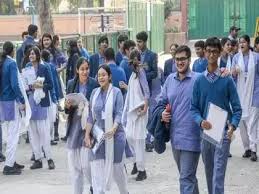Dubai: The UAE’s advanced agriculture technology sector’s enormous potential to accomplish the UN’s Sustainable Development Goals (SDGs) was a hot subject at the UAE National Food System Summit Dialogue, which took place just a few weeks ago.
The dialogue, which was hosted by Mariam Hareb Almheiri, Minister of State for Food Security, and focused on ‘Special Zones for Modern Farming and Access to Technology,’ served as a warm-up event for the United Nations’ Food Systems Summit, which will take place in September.
Representatives from federal government agencies, local governments, the private sector, foreign organizations, universities, farmers, and youth attended the conference.
The UAE’s lead in implementing AgTech (agricultural technology) might see it playing a significant role in attaining the UN’s 17 SDGs, all of which rely on ensuring global food security to some extent, was up for discussion at yesterday’s forum.
During the discussions, Almheiri stressed that the UAE’s aspiration to be a worldwide centre of innovation-driven food security, as articulated in its National Food Security Strategy 2051, was in sync with the SDGs.
“The adoption and implementation of technology throughout the food value chain represent not only the best means of enhancing our own country’s food security, but it also enables us to become a valuable knowledge resource in this vital area of agriculture – an area that the UN’s Food and Agriculture Organisation recognises as essential to meeting the entire array of SDGs,” she said.
The UAE minister added, “As the UN has pointed out, the global community is currently, of course, to be able to meet its Sustainable Development Agenda by 2030, with the global pandemic being one major interrupter that is threatening to push the target further into the distance. Nothing short of a sustained and concerted attempt by all stakeholders – governments, NGOs and private citizens – is needed to radically transform the way we produce, value and interact with food. Research, technology and innovation are the essential underpinnings of inclusive, resilient, efficient and sustainable food systems and the UAE is committed to playing its role in accelerating this transition.”
The discussion focused on the potential role of the UAE’s expanding urban farming industry in achieving the SDGs, with Controlled Environment Agriculture initiatives established inside the built environment serving as major food system disruptors that put crop production at the center of the community.
She noted that the UAE has a big opportunity to maximize its urban farming capacities and minimize pollution and expenses associated with long transportation chains by bringing food closer to the table. When urban farming is scaled up, it can help protect countries against supply chain disruptions like those witnessed when global pandemics strike.
“By taking this concept even further and encouraging citizens to produce food in their own homes, we move them from being consumers to ‘prosumers,’ in the process inculcating within them a heightened awareness of the value of food,” Almheiri noted.
The FoodTech Valley, a dedicated AgTech community that opened on May 1st this year, was also highlighted. FoodTech Valley is being built on approximately 18 million square feet of land in Dubai’s Warsan area to pioneer innovation and develop collaborative networks to promote regional food system change.
The city aspires to become a centre for future clean tech-based food and agricultural products, allowing the country to become a top exporter of sustainable food systems in the process. By integrating research and new technologies to the latest farming techniques, it will expedite self-sufficiency in fresh food output to a degree and reduce resource waste.
Using contemporary farming techniques and cutting-edge agri-technologies, the city will also grow over 300 species of crops.
































